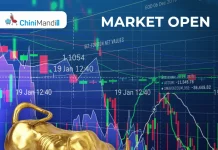Dark Times
Russian invasion of Ukraine has been considered by many experts in international relations as one the greatest ruptures on the world scenario ever since the World War II, bringing fear and perplexity, similar to the terrorist attacks in American territory on September 11, 2001, to the Western world.
Stressful situations shake the world financial markets and the investors’ tendency is to run away from the risk assets as fast as possible, bringing their resources to safer ports. A wave of problems is expected, one that will especially hit the grain and energy markets, which suffered huge volatility over this week with dramatic increases in prices, demanding great effort from CFOs of trading companies and hedgers to honor the margin calls. We all know what cash flow stress (margin calls) represents on markets, intensifying its movement and resulting in prices that usually exaggerate the highs and the lows.
In the year-to-date, according to last Friday’s quotes, gas has gone up 30%, while Brent (used by Petrobras as reference) has gone up 27% and WTI up 22%. The whole soybean complex (grain, meal and oil) has gone up 17% on average while corn has gone up 11% and wheat up 12%.
There’s more inflation to come – and at a worldwide level. And after inflation, there will be increases in interest rates, abroad as well as here, creating a doubt-ridden scenario around the highly anticipated global economic recovery.
With a slower economy, more inflation and the fall in the household purchasing power, it is just natural to assume that the industrial consumers will keep being insecure as far as stock building is concerned and should keep the “go hand mouth” strategy. More stock in the producers’ hands, more pressure on the spreads and price curves. That’s when the market goes into carry mode.
The direct implications on sugar will be felt as events develop. Europe should see the increase in beet sugar production cost, where natural gas (whose price has gone up 20% this year) is a relevant component in pricing.
A continuous and expressive oil price increase, which hit 102.62 dollars per barrel and has already come to a 46.5% high YoY, can speed up the ethanol program in India and, therefore, redirect more sugarcane to fuel production rather than sugar, decreasing the availability of the product domestically, reducing stocks, strengthening the domestic market and making export more residual. We are just conjecturing, for now.
Here in Brazil, the sugar-alcohol sector is looking forward to Petrobras adjusting gas prices at the refinery. With the gas increased on the foreign market, the gap today is at 15%, but it came to 20% this week.
The volatilities of the real and the oil together make it difficult for the Brazilian state-owned company to set a policy of price readjustment that adequately combines the maintenance of the margin, the preservation of its market share and the reduction of spasms created by the huge volatility. It’s hard.
The domestic demand for ethanol is weak and the stock is large, according to the numbers released by UNICA. Without Petrobras adjustment, the ethanol market is in a limbo. The average price of February is already 12% below the average price of January and 22% below the average seen in November/2021. Over the same period, export sugar converted into real per ton based on the NY quote has dropped 7% and 13.5%, respectively. Without a doubt, ethanol has suffered the most.
In NY, the sugar market closed out the week with March, which expires on Monday, at 17.99 cents per pound, a 21-point drop against the previous week. The physical market has been uneventful. May/2022, which is now the first trading month, closed out the week basically unchanged, at 17.64 cents per pound, followed by October/2024, which showed negative fluctuations of up to 15 points – nothing extraordinary to be reported.
The real, after having been below R$5.000 for a very short period of time, closed out the week at R$5.1500, fluctuating only 0.26% over the week. The NY open contracts converted into real per ton closed out strongly unchanged.
Any opinion about how the Russian invasion of Ukraine will play out is premature and risks getting into the collection of anecdotes. There is only one person who knows what will happen: Putin. But this is when I take the opportunity to touch on an issue, I have brought up here many times – the tail risk.
Imagine the impact we can have on the cost of sugar production if input prices (many of which come from the two conflicting countries) blow up. Risk management has a special chapter which is the unexpected events, the tricks that the market plays on us. We have to always keep that in mind: protecting ourselves from the unlikeliness.
Six months ago, among the suggestions we gave our clients as operations that aimed to protect from the unlikeliness (black swan) was the purchase of an out-of-the-money call of oil at the strike of US$100 per barrel for May/2022. At that time oil was trading at US$70 per barrel and nobody thought it would get to US$100. That’s always like this.
—
Our sugar pricing estimate for export shows that, based on data up to January 31, 2022, the mills have already fixed 16.3 million tons for the 2022/2023 crop, representing a percentage of 64% of the estimated total of sugar export for the crop starting in April. The average price gathered up to now is 16.75 cents per pound, without polarization premium, equivalent to R$2,178 per FOB Santos ton, or R$0.9480 per pound, both including the polarization premium. For the 2023/2024 crop, we believe that 12% of the exports for that period had already been fixed until January 31.
—
Those who read “Homo Deus”, written in 2015 by professor Yuval Noah Harari, PhD in history from the University of Oxford, certainly got excited about the future perspectives of humanity outlined by the author. According to him, death would just be a technical problem since medicine would advance in such a way that we would become immortal; he also stated that war would become totally obsolete and pandemics would definitely be something of the past. Unfortunately for us – mortals – Hariri has already gotten the last two ones wrong.
—
You all have a nice Carnival, though the pandemic has postponed the party, the market in Brazil (stocks and commodities) only reopens Wednesday after twelve noon.
To read the previous episodes of World Sugar Market – Weekly Comment, click here
To get in touch with Mr. Arnaldo, write on arnaldo@archerconsulting.com.br












